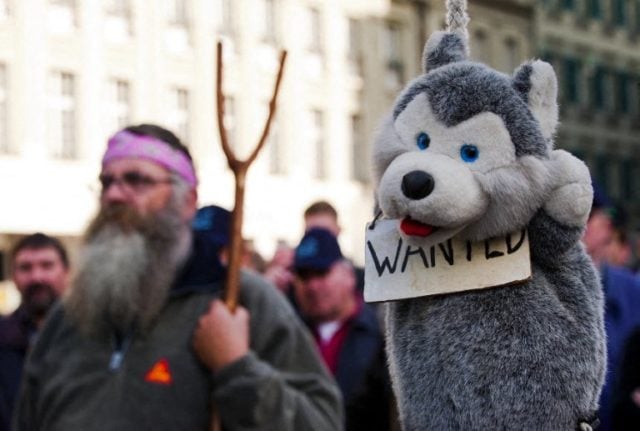Dozens of farmers have expressed their interest in growing the plant, the director of Bern’s social affairs office, Franziska Teuscher, told the paper.
Their interest comes on the back of pilot projects in the city which aim to ease restrictions on cannabis use with a view to potential legalization.
In February this year four Swiss cities, including Bern, signed up to participate in the creation of ‘cannabis clubs’ which would authorize the controlled use of cannabis for those suffering from problems linked to the drug.
Also in Bern cannabis is to be available for sale in selected pharmacies under a pilot project led by Bern University.
Cannabis use is widespread in Switzerland, with figures exceeding the European average. According to Addiction Monitoring Switzerland, at least 210,000 people smoke pot regularly, though some put the figure as high as 500,000.
According to a recent Europol report, the black market for cannabis in Europe has a value of nine billion euros, while Schweiz am Sonntag puts the Swiss share at one billion francs.
So it’s not surprising that some Swiss farmers want to get involved, should the country’s pilot projects lead to legalization of the drug.
Speaking to the paper, Andreas Wyss, director of the Bern farmers society, said: “There’s real potential.
“Growing cannabis is easy and doesn’t take much space. And there’s already some expertise related to growing hemp.”
Sandra Helfenstein, spokeswoman for the Swiss Farmers’ Union, agreed.
“We won’t push for homegrown production. But if cannabis could be sold legally I’m sure farmers would be ready to cover the demand,” she told Schweiz am Sonntag.
Currently Switzerland has around 20 hectares of land devoted to growing hemp – an industrial variety of the cannabis plant – destined for making tea, beer, paper and clothing, she said.
But farmers will have to wait and see if they will be allowed to develop homegrown cannabis production.
Bern's social affairs director Teuscher told the paper that it would be “too complicated” to trial cannabis-growing in a pilot project.
“But if one day there is federal legislation, it’s a good idea,” she said.



 Please whitelist us to continue reading.
Please whitelist us to continue reading.
Member comments